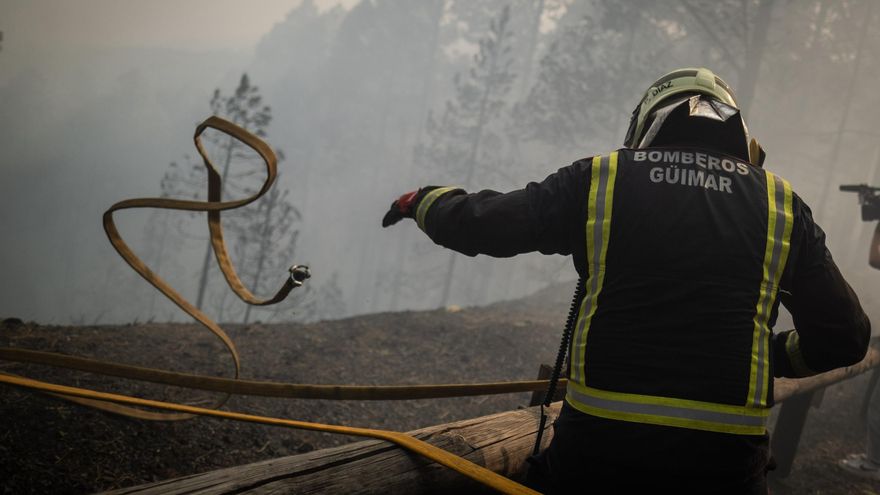
Where the air turns, in Tenerifeit is exactly between the north and the south, where Candelaria ends and Fasnia and other territories begin that already announce the small mountains that bathe thanks to the playful sea that, around 1970, dressed as a mirror of the highway.
The Southern Highway was called, and is called, like that beautiful extravagant story by Julio Cortázar. That route was a blessing for life on the island. It alleviated what for a long time was an injustice: the cruel distance that separated Santa Cruz, the capital, and the different territories of the north, from the populations that exist from Güímar to Granadilla and, even more, from all the immense south that in times suffered from orphanhood imposed by distance.
Güímar was then the beginning of the south, the end of the foothills of Santa Cruz and Candelaria, and that highway was, finally, the beginning of an extraordinary change. The south ceased to be what was behind a curtain of mountains, mountains and distance, and became beaches and tourism, hotels and the future, a desire for progress, but also destruction of the landscape. The consequence was also that many towns that previously benefited from the winding roads going in that direction languished because the new road ate much of the traffic, until today.
But that’s life, dramatic, cruel and unappealable. It was right in that place where the Autopista del Sur was born in earnest, at the height of the Puertito de Güímar, when I realized this Monday what the news was really saying, that the island was beginning to smell of the smoke it was leaving behind. the fire, it was not an exaggeration of those who exaggerate the bad news. When I got to that specific place, where by the way a Franco minister, Gonzalo Fernández de la Mora, inaugurated the aforementioned motorway around 1973, I looked up at the sky, as I always do when I fly to the island from the north.
That area of Tenerife’s air is usually clear, the mists that come from Santa Cruz and the highlands have ended, and it is in that precise place where the air (Where the air turns: this is a title by Gonzalo Torrente Ballester) shows clear, in all its freedom, from the sea to the mountains. I looked several times towards that landscape that yields its word, landscape, to an admirable reality, the one that is born from the confluence of the air from the north with the air from the south, and it frightened me to observe that a gray stain, as if coming from a wound that had received the air, it filled that part of the island, through the highlands of Güímar, inevitably going towards the successive territories that go from the beginning of the south to the deepest north, below the foothills of Teide, and even the Teide same. Teide confined! What a cruel metaphor on this island.
They were the first fingerprints of an assassination attempt. Almost at the time when the sky was showing those wounds, the President of the Government had just declared, Pedro Sanchez, on a solidarity visit to the island, that this enormous accident (nearly 14,000 hectares of desolation due to fire) was going to be declared the cause of a catastrophe. Shortly before, the canarian president, Fernando Clavijo, had quoted the most feared word in this chronicle of hell: the catastrophe was “provoked.” For the air to take this horrible turn and stop being the beneficent gift of nature that has made these islands an archipelago blessed by all the species of the wind, there must be a lot of evil.
The crime of dirtying the air, the horrible tendency of man to distort himself and offer himself as a cruel messenger to misfortune, is something much more terrible than revenge: it is a meanness against human beings, their crops, their animals, their hope. In places where the wind is essential to survive the heat that now reaches forty degrees, or almost, in many of the coastal areas of the western islands (La Gomera, for example), this crime against the air of the sky and the Montes has an expression that I had not heard on these coasts for years: “You can’t even breathe.”
And you can’t even breathe. The bronchi, like plants, like animals, are injured by that vile instrument that is human wickedness. They shoot against the sky, too, those who decided for the crime of setting fire to the beauty of the earth, to the sleep of its inhabitants.















